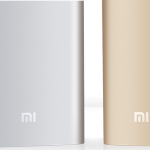NSA and GCHQ hacked world's biggest SIM card manufacturer to steal your data

In mid-2013, Edward Snowden revealed that the government-backed agency NSA monitored everything happening on the Internet, including spying on individuals' phone calls, messaging, and emails to glean information and pinpoint suspicious activities in an attempt to stop the growing terrorist acts.
Since the revelations -- which changed everyone's perspective on privacy -- the leaked information from Snowden and acceptance from major technology companies have given us an understanding of how the NSA managed to get our data from the services we heavily rely on. Essentially, either providers agreed to turn over our data or the NSA found another way, a backdoor, to obtain it. But how it manage to tap our phone calls was mostly unclear. Last year, Vodafone did acknowledge that it allowed the NSA to place surveillance tools inside its data centers. But as it turns out, the agency had more ways to log our phone activities.
Samsung lied -- its smart TV is indeed spying on you and it is doing nothing to stop that

About 70 years ago, English novelist George Orwell wrote 1984, a controversial novel which visioned of a fictional dystopian place called Oceania where people had no real privacy. As Orwell described, residents of Oceania had two-way telescreens so that they may be watched or listened to by government authorities. The book was written way ahead of its time, and while it didn't make much sense back then, a lot of assumptions Orwell made in 1984 are coming true now.
Samsung's smart TVs are in the news once again. Not for impressive sales figures -- something the South Korean technology conglomerate would definitely appreciate -- but for jeopardizing its users’ privacy.
Samsung finally gets it right -- slashes price of Galaxy A3, A5, S4, S5, S3 Neo in India

Finally acknowledging the growing competition from arch rivals and emerging players in the developing regions, Samsung today slashes the price of several of its handsets in India, one of the largest and fast-growing smartphone markets. The South Korean technology conglomerate revised the retail prices of Samsung Galaxy S4, Galaxy A3, Galaxy A5 in the country. While yet to be officially announced, the company seems to have quietly slashed the price of several more handsets too.
Galaxy S4, the flagship handset from Samsung which was launched in India in 2013 for Rs 41,500 ($667) off-contract, is now available to purchase for Rs 17,999 ($290, roughly 57 percent off), with an additional Rs 1,000 ($16) Gift card to buyers.
How Google and Facebook are breaking net neutrality to game their way into emerging markets

After proving their dominance in developed nations, technology giants are now eyeing emerging markets -- regions where a vast majority of people are yet to access the internet. Earlier this week, Facebook partnered with RCom to launch Internet.org in India to bring free internet access to millions of people who weren’t previously connected to the internet, and now we’re learning of a similar plan by Google. As The Information reports, the Mountain View-based company is working with carriers and developers to lower or eliminate the data usage and data charges in emerging markets like India.
Known in the industry as zero-rating, Google is essentially trying to act as a middleman between carriers and app developers to reduce the data charges as well as other expenses sought by app developers to ensure that the price of using these services by users is minimal. The company would be closely monitoring data usage when a person uses any of the app partner’s app and would pay the carrier the fee.
After disrupting the smartphone market in China, Xiaomi announces plan to enter the US this year

After growing its user base in China, and expanding presence in Singapore, Taiwan, India, and four other international regions, Chinese smartphone manufacturer Xiaomi is taking its first step to debut in the United States market. Hugo Barra, Xiaomi’s VP of International announces the company’s plan to sell a range of products to United States residents through its website Mi.com "in a few months".
The company, however, doesn't plan to sell its dirt-cheap smartphones in United States just yet. Instead, Barra says that Xiaomi will be selling products such as health bands, power chargers, and headphones. Xiaomi "can bring these products to market much faster because they are simpler to take to market", he said at a news conference in San Francisco.
Facebook continues to bring free Internet access to people, partners with RCom to launch Internet.org in India

Facebook is on a mission to get more people to use the internet. Through Internet.org -- a global partnership between the social networking service and six mobile phone technology giants, nonprofits, local communities and experts -- the company today took its biggest step in that direction. Internet.org is now available in India, the world’s second most populous nation.
The company has partnered with Reliance Communications, an Indian broadband and telecommunications company, to provide access to 38 services (products and websites) for free. To get things started, the service has been launched in six Indian states -- Tamil Nadu, Mahararashtra, Andhra Pradesh, Gujarat, Kerala, and Telangana -- and will work for both existing and new RCom subscribers.
OnePlus One -- the flagship killer -- to sell without invite every Tuesday

Chinese smartphone manufacturer OnePlus made a big splash last year with its OnePlus One flagship smartphone. The handset packs in the best in class hardware specifications while maintaining an enticing and comparatively cheaper $300 price tag. The phone -- which is often touted as the "flagship killer" -- however, garnered press for another reason: for just how hard it is to purchase the darn handset! But here comes the good news, OnePlus is finally cosying up with the way it sells handsets, making it easier for consumers to purchase the One.
The company sells the handsets through an "invitation" model wherein it requires a customer to have the invitation code before an order can be placed. If that wasn’t confusing already, the invitation is also pretty hard to collect. Among other ways, one has to take part in the company’s social media contests and share OnePlus related updates on their social media accounts. But those days are finally behind us...at least for one day a week. In a blog post, the company has announced that it will no longer ask users for an invitation on Tuesdays.
WhatsApp set to introduce voice calling -- here's why it matters

WhatsApp today rolled out an update to its iOS app, which along with bug fixes adds a dialer button to its text messaging service. The dialer button -- as you might imagine -- is for placing voice calls, a feature that the Facebook-owned company announced last February. Earlier this week, the same feature was spotted on the WhatsApp’s Android client, and the company also confirmed that it was beta testing it with select users.
The feature, however, doesn’t work just yet, but changes in the user interface do give us an idea of what this forthcoming feature will look like. It is evident that WhatsApp has plans to roll out the voice-calling feature to its app shortly. But why is everyone in the press writing about it? How does the addition of voice calling functionality -- something which Facebook’s Messenger, Google’s Hangouts, and Microsoft’s Skype already offer -- change things? Here’s how.
Samsung slowly becoming irrelevant in the smartphone market

Samsung Electronics, the digital gadget arm of the South Korean technology conglomerate, made $4.87 billion profit in revenue last quarter. It’s a huge number, but significantly lower than $7.7 billion profit the company made in the same period a year ago, and again, a lot less than the $8.27 billion profit from two years ago.
In terms of smartphone shipment, the company shipped 75.1 million smartphones last quarter, compared to 84.4 million from a year ago. As per IDC, the company’s market share dipped from 31 percent in 2013 to 24.5 percent by the end of 2014. What’s happening? Why has the company’s profit and shipment figures slumped down? Once the only mammoth in the smartphone world (by shipment figure), Samsung is slowly becoming irrelevant in the game. Here’s how.
Google shows interest in Indian startups, launches Launchpad to mentor 20 of them

In yet another major push into the Indian technology sector, Google has kick-started its Launchpad startup mentorship program in the country. The company has announced plans to offer three-month mentoring to 20 shortlisted startups. The move signals the search giant’s growing interest towards Indian startups.
Launchpad -- which was started two-and-a half years ago -- is run by Google’s developer team. They examined more than 1,450 ventures and shortlisted 20 startups from it. Half of the startups in the curated list are in the B2B space while rest of them cater to businesses. A few of them focus on education and healthcare verticals.
Manish's Bio
Manish is pursuing his Bachelors of Technology in computer science and engineering but spends more time in writing about technology. He has written for a number of Indian and international publications including BGR India, MediaNama, and Digit magazine among others. When not writing, you would find him ranting about the state of digital journalism on Twitter.
BetaNews, your source for breaking tech news, reviews, and in-depth reporting since 1998.
© 1998-2025 BetaNews, Inc. All Rights Reserved. About Us - Privacy Policy - Cookie Policy - Sitemap.
